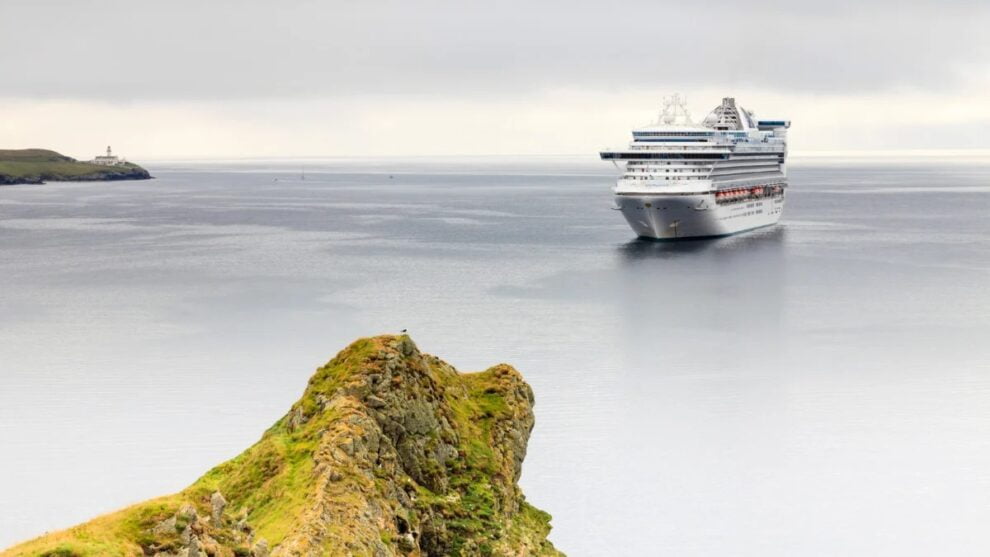Cruise ships visiting Scotland will be charged a new tax under plans announced by the Scottish Green party.
It said the levy would tackle the “twin challenges” of harmful emissions and the impact of thousands of tourists on port communities.
Circular economy minister Lorna Slater told her party’s conference in Dunfermline that this could target the most polluting vessels.
An extension of free ferry travel for young people was also unveiled.
All young people under the age of 22 living on Scottish islands will now be entitled to four free mainland trips a year.
Previously the scheme applied only to 16 to 18-year-olds.
Ms Slater, Scottish Green co-leader, said she hoped the cruise ship levy would be structured to incentivise operators to use less-polluting vessels.
She said: “We will work with our partners in local government to empower councils to charge visiting cruise ships a levy.
“It will mean communities hosting cruise ships get the investment they deserve, and our aim would also be to encourage greener ships.
“This is essential – one ship produces the same amount of carbon emissions as 12,000 cars; operators have been allowed to get away with polluting for too long.”
A total of 817,000 cruise ship passengers visited Scotland in 2019 and some councils have raised concerns about the trade is having.
Orkney Council last month approved plans to limit the number of ships that can visit at one time.
Greenock, Oban, Lerwick and Leith are among the other ports in Scotland regularly hosting cruise ships.
Elsewhere at the Scottish Greens conference, it was announced that £2m of Scottish government funding had been secured to enable the roll-out of free bus travel to asylum seekers in Scotland.
It comes after Holyrood’s equalities, human rights and civil justice committee backed the move.
During her speech to the conference, Ms Slater also pledged to build on their power sharing deal with the SNP and press on with policies to tackle the climate crisis.
She said the party had made a positive impact since signing the 2021 Bute House Agreement.
She said: “Last week saw flooding across our country, with hundreds of people forced to evacuate their homes.
“It’s clear to everyone that the climate crisis is deepening, that’s why Scottish Green voices are more vital now than ever before.”
She added the party’s achievements in government included free bus travel for under 22s and the removal of peak rail fares.
The Scottish Greens have been in government for two years now, and are increasingly confident about their role. The big advantage of being in power is that you can actually deliver on your policies.
So instead of a conference announcing ideas you would like to see enacted, you can announce things that are happening.
Hence the two co-leaders were able to set out the expansion of free travel on buses and ferries, a boost for the solar energy sector and extra powers for councils.
There are still some tensions within the partnership government, in particular over Humza Yousaf’s conference announcement about a council tax freeze. The Greens didn’t welcome either how that was announced, or the fact it sticks with a system they would like to see completely revamped.
But they are increasingly clear on the benefits of being in power – and are looking forward to what they can achieve in the remainder of the Holyrood term, and show off to voters as the product of Green influence.
Ms Slater, who survived a vote of no confidence in her as a Scottish government minister earlier this year, also spoke about the “bile” she experienced “every day” from her critics.
Ms Slater said: “I’ve seen their full force in the chamber, in the right wing media and on social media.
She criticised the Westminster government’s decision to “double down” on oil and gas and highlighted the case for a “just transition” to renewables.
In July Prime Minister Rishi Sunak defended the move to grant 100 new North Sea oil and gas licences and said it was “entirely consistent” with net zero commitments.
And last month he said a new Scottish oil field would help prevent young people from growing up “dependent on foreign dictators” for energy security.
Source: BBC











